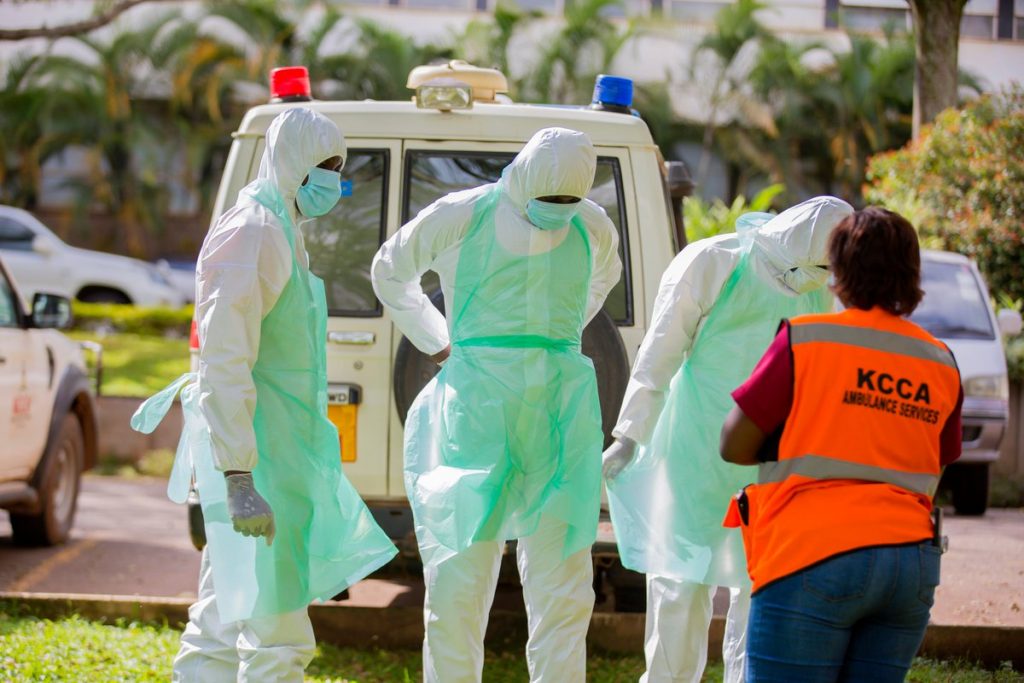Malaria is the leading cause of sickness and death in Uganda. Ministry of Health Uganda however is spearheading the prevention through the under the net campaign started off this year, leading the correct diagnosis and treatment modules which have all crucially helped to reduce malaria cases and mortality as well as lower the risk of resistance to antimalarial medicines and decrease medicine waste and misuse.
However, due to inappropriate practices in malaria testing and treatment, many patients are treated
incorrectly, receiving unnecessary or wrong medications.
The case of Moroto Hospital
In May 2017, the Moroto Regional Referral Hospital in north eastern Uganda discovered
several instances where patients were prescribed artemisinin-based combination therapy
(ACT) to treat Plasmodium falciparum, a severe form of malaria, although they had received
negative test results or weren’t tested at all.
In the past, when malaria prevalence was higher and rapid diagnostic tests were not available, any fever was often perceived to be malaria, and presumptive treatment was common. Now that rapid diagnostic tests are
widely available, only people testing positive should be treated. However, some clinicians
and patients still insist on treating suspected cases of malaria independently from test results.
USAID programs come in
To tackle the problem, USAID’s Uganda Health Supply Chain program implemented by Management Sciences for Health helped the Moroto Hospital revitalize its Medicine and Therapeutics Committee, which works to reduce incorrect medical practices by improving medicine use and the quality of care in health facilities.
Working with the Ministry of Health’s Pharmacy Department, the USAID program trained committee members, including hospital staff, on how to improve medicine management and use, generate and use data to
investigate inappropriate therapeutic practices, and design interventions to address them.
“We set a standard for good decision-making,” said Dr. Francis Alfred Ogwang, chair of the Medicine and Therapeutics Committee.
“It helped us track medicine use and minimize the unnecessary waste of our antimalarial medicines.” The hospital, which serves about 1.8 million people, took action on several fronts. It educated medical practitioners on the importance of correct testing and treatment. Pharmacy staff were instructed to dispense
antimalarial medicines only to patients with positive test results. Informational sessions on malaria were conducted for patients.
In addition, the hospital introduced new rapid diagnostic tests in outpatient clinics and wards so that nurses could quickly test patients. When the committee conducted surveys among patients receiving malaria treatment, it was clear the interventions were having an impact. The testing rate among patients receiving ACT rose from 45 percent in May 2017 to 86 percent in March 2018, and the percentage of patients receiving treatment with a negative test result decreased from 31 percent to 9 percent in the same time period. In addition, the percentage of patients treated who had tested positive increased from 14 percent to 77 percent.
Moroto’s success story
The word of Moroto’s success in improving malaria management spread and directors of several other regional referral hospitals, managers from Uganda’s Catholic and Protestant medicine bureaus, and two private hospitals expressed interest in adopting a similar approach. But the Moroto Hospital is not stopping there. The Medicine and Therapeutics Committee also plans to reduce the excessive use of injectable medicines and antibiotics
in the outpatient department. “I am confident these efforts will continue because of our reliable and skilled personnel and the commitment of the management, and because of the continuous educational sessions for staff and patients,” said Ogwang.
With USAID’s support, the hospital is now able to manage its health systems and resources more efficiently, strengthen services through staff training, and make better treatment decisions to improve patients’ health and save lives. Through the program, hospitals in several other locations in Uganda — including Lira, Naguru, Soroti and Arua — have achieved similar improvements in malaria diagnosis and treatment.
